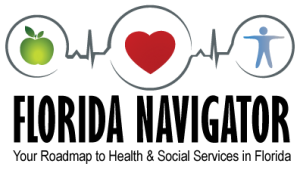Older adults age 65 and over are at higher risk for many types of injuries that can have devastating effects. In some cases, leading to loss of independence, disability, or death. Falls are the leading cause of injury death for Americans 65 years and older. Twenty percent to 30% of people who fall suffer moderate to severe injuries such as bruises, hip fractures, or head traumas. They are also the most common cause of nonfatal injuries and hospital admissions for trauma. People age 75 and older are in one of the age groups at highest risk for Traumatic Brain Injury.
What happens when someone suddenly becomes disabled? How do you react? What do they go through? What resources can help both the accident victim and the caregiver?
The individual with a new disability may be in shock, disoriented, and confused about the future. They may be asking themselves “how am I going to go on with my life, remain independent, or get help? “ They may experience a variety of emotions such as anger, denial, sadness, or depression.
Family members may experience similar feelings. They may feel isolated, not knowing what the future will bring or who can help them in this time of crisis.
Elizabeth Kubler-Ross identified five stages of grief that the person with a disability or family members may experience: denial, anger, bargaining, depression, and acceptance. A person can go through these stages in any order and they may be repeated. Each stage may last different amounts of time.
Various things affect how people live with their disability:
- Type of disability
- Cause of disability
- Severity of disability
- Visibility vs. invisibility of the particular disability
- Coping abilities of the patient and family
- Previous attitudes toward disability and illness
- Reactions of family, friends, and health care professionals
- Personality
- Availability of supportive services
When illness or disability strikes the patient and families may become overwhelmed with questions and information. Your doctor is key to the process of treatment and recovery, whether you have a progressive illness that develops over time, or a sudden disability caused by an accident.
Becoming disabled means you may need support from health and social service agencies. The hospital social worker or case manager can assess your needs and connect you with services. These services may include home health care, financial aid, counseling and support groups, and other services for older adults.
Patients and families need to ask their health care professionals questions about the disability or health condition, treatment and recovery, and what services are available to help the individual and the family.
Caregivers need to take care of themselves. You need to take breaks, enjoy your own leisure activities, and delegate responsibilities to others if possible.
The following services are available in the community:
For general information: Call 211
Area Agency on Aging (Elder Helpline) 561-684-5885
For people with certain health conditions:
Alzheimer’s Association 24-Hour Crisis Line 1-800-272.3900
American Parkinson’s Disease Association
954-786-2305
Arthritis Foundation
561-833-1133
MS Society for South Florida 800-344-4867
American Cancer Society 561.394.7751
American Diabetes Association 1.800.342.2383
American Heart Association 561.697.6600
American Lung Association 561.659.7644
Susan G Komen for the Cure 561.514.3020
Coalition for Independent Living Options 561.966.4288
For people with visual impairments:
Lighthouse for the Blind 561-848-7200
Talking Books Library 888-780-5151
Radio Reading Service 800-273-6677
Florida Outreach Center for the Blind 561.642.0005
U.S. Department of Veterans Affairs: West Palm Beach Blind Rehabilitation Center 561. 422.8426
NFB Newsline 1.866.504.7300
For people with hearing impairments:
Deaf Service Center 561-278-6444
Caregiver assistance and support:
Caregiver Magazine www.caregiver.com
Caregiver Action Network 800-896-3650, www.caregiveraction.org
Well Spouse Association 800-838-0879
Counseling and Support Groups
Ruth Rales Jewish Family Services 561-852-3333
Faulk Center for Counseling 561-483-5300
Morse Life Neighbors2Neighbors 561.531.9844
Transportation:
Palm Tran Connection 877-870-9849
Non-Driver’s ID card 501 S. Congress Ave, Delray Bch
Ruth Rales Jewish Family Services 561-852-3333
The Volen Center 561.395.8920
Senior Services (Adult Day Care, Senior Center)
Weisman Delray Community Center 561.558.2100
Alzheimer’s Community Care : 561.391.6955


